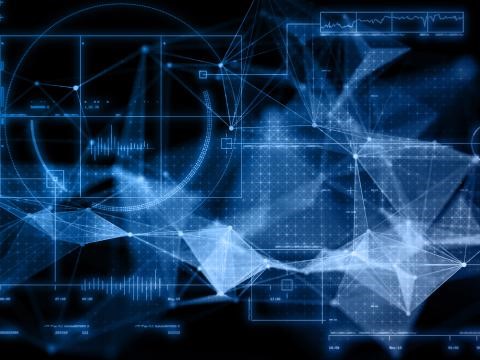EU merges digital tech with green energy: Highlights from CINEA’s Energy Data Workshop aligned with the Digitalisation of Energy Plan and REPowerEU goals.
The European Union is working to build a framework for an energy data space to support its green energy goals, blending digital advancements with efforts of massive integration of renewable energy sources (RES). The Energy Data Space Cluster Workshop, held on 13th September 2023 at CINEA premises, was an opportunity to discuss the steps towards forming a data strategy in the energy sector, in line with the Digitalisation of Energy Action Plan and REPowerEU targets, amid growing energy concerns.
The main messages coming from the workshop were:
Digital-Driven Energy Transition:
- Discussion centred around the synergy between reaching the EU’s green energy targets, such as a 42.5% renewable energy share, and the advancement of digitalisation within the energy sector.
- The role of various Research and Innovation projects, notably under the Horizon Europe initiative, is instrumental in nurturing this synergy, paving the way for a robust Common European Energy Data Space (CEEDS).
Collaborative Endeavours:
- The national initiatives like Belgium’s TSO Elia’s data access platform, Denmark’s TSO Energinet’s data hub strategy, France’s TSO RTE energy app framework and Austria’s electronic data exchange (EDA) infrastructure are emerging as exemplary models for enhancing data sharing and demand-side flexibility according to generation capacities.
- The collective spirit of the workshop, engaging many stakeholders—DSOs, TSOs, manufacturers, regulators, aggregators, policymakers, and researchers, showcases the collaborative ethos necessary for this digital and green energy transition.
Harmonized Frameworks:
- The workshop underscored the necessity of a harmonized data management framework for better integration of flexible services ‘behind the meter’, and to foster digital infrastructure synergies across nations and sectors.
- The discussion on Compliance and Certification highlighted the essence of a structured, modular framework to ensure software compliance, without stifling innovation through a rigid, one-size-fits-all approach.
- The Data Spaces Support Centre has drafted an initial blueprint to guide implementation of data spaces funded under the Digital Europe programme. This blueprint focuses on identifying the specific needs of data space initiatives across different verticals, establishing common requirements, and establishing best practices.
Several key recommendations emerged from the workshop discussions, notably on advocating for standardization and harmonization, bolstering national initiatives, and fostering diverse stakeholder engagement across sectors like energy, EV charging, building automation and home appliances. Firstly, promoting the standardization of APIs and harmonization of data management frameworks is pivotal as it paves the way for smooth data sharing and analysis, which is crucial for managing energy flexibility and integrating diverse energy resources beyond traditional grid operation schemes. Secondly, extending support and acknowledgment to national initiatives that are at the forefront of creating effective data sharing platforms is essential. This will ensure that the valuable insights gleaned from these initiatives are not only disseminated but also promoted across EU member states, thereby creating a ripple effect of knowledge and innovation. Lastly, cultivating an open dialogue with a wide spectrum of stakeholders is essential to decentralisation and electrification of the electricity grid.
Looking ahead, the focus is on several strategic actions:
Develop an online Repository: Establishing an online repository to enhance awareness of major national infrastructure initiatives and facilitate the exchange of best practices, envisioning a future where common architectural models and essential building blocks become the norm to address scalable solutions for the identified use-cases under the Horizon Europe initiative.
Accelerate the realization of CEEDS: Intensify collective endeavours among various projects to accelerate the establishment of the Common European Energy Data Space (CEEDS), spotlighting the deployment of priority use-case scenarios.Supplement support for CEEDS is planned from the Digital Europe Programme (under Call 3, of the Work Programme 2023-2024).
The workshop was a steppingstone, highlighting the intertwined pathways of digitalization of the energy system and laying groundwork for collaborative work towards a common framework for a European energy data space, in preparation of a deployment action under the Digital Europe Programme in 2024. For more details of the workshop and upcoming steps, full workshop report provides a thorough overview.
Source: European Commission | Shaping Europe’s digital future (https://shorturl.at/ipEK8)
